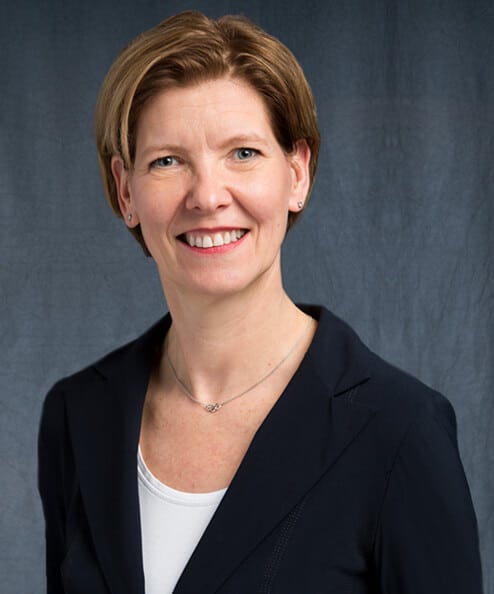Life Sciences Career Opportunities Update: Trends in 2018
Amsterdam, the Netherlands – Life Sciences is at the cutting edge of fighting disease – whether by modifying the DNA of naturally-occurring cells in biopharma, applying the latest technologies in MedTech, or introducing more effective and cost-efficient therapies to patients. In this fast-expanding industry, job profiles are transforming and the demand for skilled professionals is constantly increasing.
 We have noted a number of interesting trends in employment opportunities in the Life Sciences sector worldwide:
We have noted a number of interesting trends in employment opportunities in the Life Sciences sector worldwide:
Globalisation with a focus on Asia
The sector is becoming increasingly globalised, with significant growth in recent years seen in Asia in particular. Asia is by far the fastest-growing continent, with China and India seeing particularly significant large-scale growth over the past decade. This growth is far from a matter of mere outsourcing by North America and Europe: China and India together comprise more than a third of the world’s population, and are both increasingly developing their industries to serve domestic markets. [1]
Digitalisation: The growing roles of Big Data and Artificial Intelligence
In an industry defined by technological innovation, it is almost impossible to predict where the next technological breakthrough will originate. As a whole, the healthcare technology sector is young, and there are many companies developing new applications and devices that will impact the industry.
Nevertheless, certain trends are sure to continue. Jim Esinhart, CEO of biopharma firm Chiltern, observed last year: “As with many modern industries, Big Data is already having a sizeable impact, particularly in terms of its growing use for trial design, feasibility assessment, and clinical trial recruitment. We can expect this trend to continue, and with it a growth in opportunities for data experts. [2]” Innovation will increasingly involve “integrating, storing, interrogating, and analysing large datasets from multiple sources to develop more targeted therapies and personalised medicines. [3]” Similarly, the growing use of Artificial Intelligence in disease research has been discussed in recent years. Without a doubt, the role of computerization can only grow, and with it the demand for skilled experts in Big Data and AI.
Outsourcing of manufacturing, R&D, and clinical trials
The role of outsourcing is becoming ever more important and continues to evolve. The major recent industry trend is the outsourcing of manufacturing, with Contract Manufacturing Organisations (CMOs) playing a larger role. Technological advancements increasingly allow for the outsourcing of extremely complex operations worldwide: “The current trend is towards the development of “flexible, small-volume manufacturing capabilities… in modular facilities, which can be readily replicated anywhere in the world. [4]”
There is also a growth in R&D outsourcing: industry budgets for outsourced development are growing even more quickly than those for outsourced manufacturing. Moreover, we are also seeing notable growth in the outsourcing of testing services: clinical trials by independent Contract Research Organisations (CROs) are now a global phenomenon.
Here we see the truly globalised direction of Life Sciences: the industry increasingly has the ability to globally outsource not only manufacturing but also research. And as these sectors become global, so do the jobs market for skilled professionals. It is highly significant that multi-billion-dollar South Korean electronics giant Samsung has staked its future on the continuation of this trend, declaring its intention to become the world’s largest contract manufacturer of biopharmaceuticals by 2020. [5]
International harmonisation of standards
At present, the outsourcing trend is limited by the fact that many countries lack the strict regulatory practices necessary to gain eventual approval for new drugs in the lucrative US and EU markets. This situation can be expected to change in the near future: China is rapidly developing its regulatory environment with a specific view to harmonising with international standards. [6] As regulation in China becomes more stringent, we can expect to see a corresponding increase in outsourcing there, and with it an increasing demand for skilled professionals interested in working in China.
The rise of the biosimilars industry
Aside from the primary pharma and medical devices industry, an enormous boom is predicted in the field of biosimilars which will mimic the boom in generics: near-identical copies of biopharma products, at lower prices. For developing countries in particular, the ability to manufacture biosimilars at a relatively low cost is crucial for economic and social development. India in particular is notable for its growing development of biosimilars, including some which have also received approval for sale in the US and EU. [7] This growth in the biosimilars industry will inevitably exacerbate the shortage of skilled professionals in biopharma: at every stage from R&D to manufacturing, similar skillsets are required in both industries.
Global employment prospects
The continuing growth of the Life Sciences industry has led to a greatly increased demand for scientific and technical leadership in a wide range of fields: in addition to Research, Development, Clinical and Manufacturing, we are now seeing an ever greater recruitment of competencies in the fields of Big Data and Artificial intelligence.
Much of this growth is taking place outside the traditional big players in the pharmaceutical and medical devices industry: outsourcing key processes to specialized Contract Research Organisations and Contract Manufacturing Organisations is increasingly becoming the norm, and five years from now the composition of the sector may well be radically different from today. Moreover, the employment opportunities available in this fast-changing field are likely to soon be rivalled by a boom in employment opportunities in the closely-related field of biopharma and biosimilars.
The sectors in North America and Europe will no doubt remain strong. However, it is clear that the Asian sector will continue to show the strongest growth. From China’s state-level harmonization with international regulatory standards, to South Korea’s private sector drive to dominate the global CMO market, to India’s growing biosimilars industry, Asia is the site of the most dramatic expansion, and professionals seeking to build their career would do well to consider the many opportunities that the continent has to offer.
Sources:
[1] https://www.bioprocessonline.com/doc/biopharmaceutical-trends-opportunities-for-the-new-year-0001
[2] https://www.clinicalleader.com/doc/biopharma-trends-that-will-impact-the-industry-in-0001
[3] http://phrma-docs.phrma.org/sites/default/files/pdf/biopharmaceutical-industry-profile.pdf
[5] http://www.koreaherald.com/common_prog/newsprint.php?ud=20160721000827&dt=2
[7] https://www.bioprocessonline.com/doc/biopharmaceutical-trends-opportunities-for-the-new-year-0001
 Lydia van der Meulen is a Client Partner at Pedersen & Partners, based in Amsterdam, the Netherlands. With her extensive search execution background in the Life Sciences, Industrial and Food industries, Mrs. van der Meulen brings to the firm two decades of end-to-end Executive Search project management expertise across Western and Central Europe, with occasional work in the USA, India, and China. Mrs. van der Meulen entered the Executive Search field in 1997 as European Search Director at the London office of a global boutique firm, specialised in Life Sciences & Industrial, for which she subsequently set up the Benelux office in 2002. As Managing Director, she grew and managed this steadily growing business to a team of four at its peak. From 2012 she continued as Managing Director for a global U.S. Executive Search firm and helped build their presence in Europe. Over the years Mrs. van der Meulen has conducted successful searches for start-ups, mid-sized organisations and multinationals, both publicly listed and privately held. Her experience includes: General Management, Human Resources, Sales & Marketing, Market Access, Public Affairs, Regulatory Affairs, Medical & Clinical, Quality, R&D, Manufacturing, and Technical Operations. Prior to joining the Executive Search sector, Mrs. van der Meulen worked in Management Consulting in London and Private Banking in the Netherlands.
Lydia van der Meulen is a Client Partner at Pedersen & Partners, based in Amsterdam, the Netherlands. With her extensive search execution background in the Life Sciences, Industrial and Food industries, Mrs. van der Meulen brings to the firm two decades of end-to-end Executive Search project management expertise across Western and Central Europe, with occasional work in the USA, India, and China. Mrs. van der Meulen entered the Executive Search field in 1997 as European Search Director at the London office of a global boutique firm, specialised in Life Sciences & Industrial, for which she subsequently set up the Benelux office in 2002. As Managing Director, she grew and managed this steadily growing business to a team of four at its peak. From 2012 she continued as Managing Director for a global U.S. Executive Search firm and helped build their presence in Europe. Over the years Mrs. van der Meulen has conducted successful searches for start-ups, mid-sized organisations and multinationals, both publicly listed and privately held. Her experience includes: General Management, Human Resources, Sales & Marketing, Market Access, Public Affairs, Regulatory Affairs, Medical & Clinical, Quality, R&D, Manufacturing, and Technical Operations. Prior to joining the Executive Search sector, Mrs. van der Meulen worked in Management Consulting in London and Private Banking in the Netherlands.
Pedersen & Partners is a leading international Executive Search firm. We operate 56 wholly owned offices in 52 countries across Europe, the Middle East, Africa, Asia & the Americas. Our values Trust, Relationship and Professionalism apply to our interaction with clients as well as executives. More information about Pedersen & Partners is available at www.pedersenandpartners.com
If you would like to conduct an interview with a representative of Pedersen & Partners, or have other media-related requests, please contact: Anastasia Alpaticova, Marketing and Communications Manager at: anastasia.alpaticova@pedersenandpartners.com
